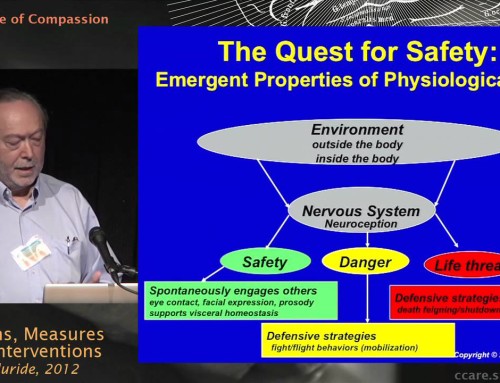For too long, the pervasive effects of trauma have been ignored in psychotherapy. As neurobiology has made huge leaps in the last decade in our understanding of trauma, a new model of psychotherapy has emerged that integrates this important information.
Somatic Attachment Psychotherapy is an approach to counselling focused on resolving shock and attachment trauma, and the combination of the two, called complex trauma. Complex trauma usually underlies most recurring problems for which people seek help.
Trauma occurs when our experience is “too much and too fast” for our brains to process in the moment. Sensory fragments of the event get stored in the body as dysregulated neural states, which can easily be reactivated. These patterns of both over-reacting and under-reacting to people and stressors can wreak havoc on our lives if left untreated.
In order to resolve trauma, we need to be regulated and embodied. Being regulated means you feel safe, grounded, and present. Being embodied means you can feel and tolerate the moment-to-moment sensations in your body, both pleasant and uncomfortable.
“Somatic” refers to the body, and in my sessions, I attend to both my body and my client’s. I track gestures, tone of voice, subtle movements of the face, and our neural states (regulated vs. high or low arousal).
“Attachment” refers to our earliest patterns of relationships with our primary caregivers. Abuse and neglect can leave a person more vulnerable to trauma. For example, if a child was not comforted or told it was not her fault when something bad happened, that child may believe she was wrong or bad, and not worthy of comfort. That belief can linger, and as an adult, she may be reluctant to seek help from others to recover from current hurts. She may also feel like at her core, she is not worthy of love, and find herself repeating unhealthy relationship patterns.
As an attachment-based therapist, I focus on repairing relational ruptures that have lead to a person’s distorted beliefs about herself. Resolving these core beliefs by attending to the dysregulated states held in the body can transform the debilitating effects of trauma into a more integrated and healthy sense of self.






